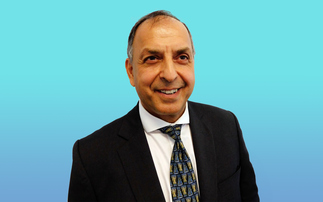SJP protection advocate had to watch the show twice, but not because he enjoyed it
The pandemic has dominated all of our lives for the majority of 2020 and is likely to continue to do so until the spring of 2021. The financial implications for the country are likely to last considerably longer than this.
To this end I was hugely encouraged to hear that the Personal Finance Society (PFS) had engaged with ITN to produce a programme entitled Financial Wellbeing looking at the individual financial challenges that customers face and the role an adviser can play.
I sat down in some anticipation and I am not ashamed to say some excitement, to review the result. I watched it through once, then felt compelled to watch it again.
The PFS do not appear to understand the importance and value of protection... an opportunity has been missed.
Had I enjoyed it that much? - No. I watched it a second time because I could not believe what I had witnessed the first time.
Promising start
Before I explain my reaction, let me remind you that the PFS are the professional body for the financial planning professionals in the UK whose remit, in their own words "is to lead the financial planning community towards higher levels of professionalism exhibited through technical knowledge, client service and ethical practice." Fine words. So back to the programme.
It started positively, headlining that it would look at the health and wealth of the nation and show how the industry has adapted to new ways of working under the pandemic to help customers in this time of uncertainty.
It began by acknowledging that investment is only one factor, that everyone is different in terms of their aspirations and objectives. That it wasn't just about saving: a financial planner could help a customer engage in thinking about what they want to achieve for them and their families, particularly at different life stages.
Perfectly set up, or at least I thought, for a conversation around the foundations of financial planning: protection. But no, it was about savings and investment. Even when examples were given about having children, financial planning was around funding for education despite the reality that most private education is paid out of income and the primary need therefore is to protect the income itself.
'Game-changing' omission
Other life stages mentioned were that of a first mortgage. Was protection raised? Not a bit of it. Instead we get platitudes about understanding the difference between essential and non-essential expenditure in order to save for more aspirational objectives.
However, all was not lost as the next section started with a preamble of whether financial advice has the ability to deliver "game-changing results to consumers". Surely the perfect segway into the importance and value of protection as a starting point for financial plans - but no. Instead we get vague comments around the difference a financial adviser can make: helping clients feel more in control of their finances, so they can feel more secure and, best of all, so that they can feel better prepared for financial shocks!
Believe it or not, this section actually finished with the observation financial advisers are able to ensure their clients are "less worried and anxious about the life risks that may be around the corner…" without even mentioning how - for the PFSs' benefit the answer is protection!
'I am not even surprised'
There were other sections on ethical investing, the value of digital tools to help employers provide accessible advice to employees and a section on pension freedoms, specifically the new secure lifetime income (SLI). While I have no issue with SLI. It is still niche and untested as a concept, unlike dare I suggest, life insurance, critical illness and income protection.
If I sound annoyed I am not. Sadly I am not even surprised. I am just disappointed. Disappointed that the PFS do not appear to understand the importance and value of protection, and disappointed that an opportunity has been missed.
On the PFS own site, which has the link to the programme, Keith Richards, CEO of the PFS, states "receiving financial advice can make a positive difference to the lives of all of those who receive it as well as their family" - I entirely agree. He goes on: "I hope all our members will encourage their clients to watch this excellent programme and feature it on their own websites" - personally, I hope they don't.
Tony Müdd is divisional director, development & technical consultancy for St. James's Place Wealth Management













